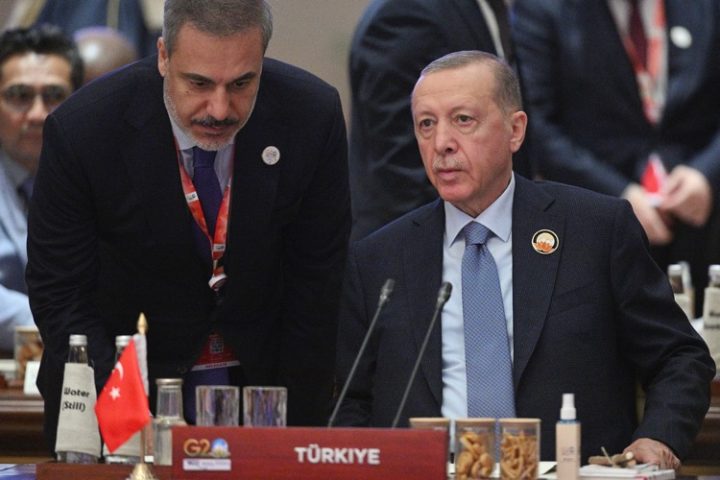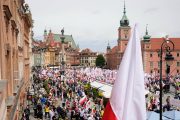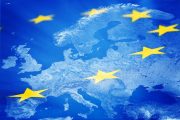
Turkish President Recep Tayyip Erdoğan has cautioned that Ankara could ditch its long-running EU membership bid in retaliation for an EU report denouncing his country’s “downward spiral in terms of human rights.”
“The EU is trying to break away from Türkiye,” Erdoğan said of Brussels, adding, “We will make our evaluations against these developments and if necessary, we can part ways with the EU.”
The report, earlier voted on by the European Parliament (EP), censured Türkiye for various actions curbing “fundamental freedoms, human rights and civil liberties, as well as by its actions going against international law and good neighborly relations.”
Notably, the same report singled out Türkiye’s supposed treatment of the LGBTQ community, its territorial contests with Greece, and its reluctance to restrict or criticize Moscow over the conflict in Ukraine as illustrations of “the growing gap between Türkiye and the EU on values and standards.”
Moreover, the report concluded by suggesting that Türkiye’s admittance to the EU be temporarily halted until these matters, and others, are addressed. In the meantime, the report recommended that Ankara be given “a modernized association agreement” instead of a pathway to membership.
In response, the Turkish Foreign Ministry lambasted the report for containing unsubstantiated claims and adopting “a shallow and non-visionary” approach to the country’s ties with the EU.
Türkiye applied for European Economic Community (EEC, the predecessor to the EU) membership in 1987 and was acknowledged as a candidate in 1999. Although membership discussions began in 2005, progress has been stagnant, with no negotiations taking place since 2016. EU officials have since criticized Erdoğan for alleged human-rights abuses, and the European Parliament has published several reports cautioning that Erdoğan risked jeopardizing Ankara’s membership bid.
Additionally, Erdoğan disregarded a 2017 report indicating that constitutional reforms boosting his powers could violate EU law, stating, “You can write as many reports as you want. We do not recognize your reports. We will not recognize them in the future, either.”
Recent months have seen Austrian Chancellor Karl Nehammer, German Foreign Minister Annalena Baerbock, and European Commission spokesperson Peter Stano proclaiming that Türkiye would most likely not join the ranks of the EU in the near future.
Austrian Chancellor Karl Nehammer went even further, calling on the EU to admit that Türkiye would not ever become a member, highlighting the necessity of ending Türkiye’s stalled accession bid while proposing that Brussels consider other ways to boost its ties with Ankara.
In an interview with Germany’s Die Welt newspaper published on September 12, Nehammer declared, “We are for further convergence between Ankara and Brussels, but Türkiye’s full membership in the EU is not imaginable for us.”
“It is important that we treat each other honestly, and that also means to formally end the accession negotiations that have been frozen for years and to develop a new concept for neighborly cooperation,” Nehammer continued, noting that Ankara remains a vital partner of the EU.
During a joint press conference with European Commissioner for Neighborhood and Enlargement Oliver Varhelyi earlier, Turkish Foreign Minister Hakan Fidan lobbied for expediting his country’s accession process.
“Without Türkiye, the European Union cannot be a really global actor,” the diplomat posited at the time.
In July, Germany’s Baerbock stated that Türkiye would not join the EU anytime soon, justifying the stagnant accession process because of Ankara’s seeming failure to fulfill “important [criteria] that are essential for these talks.” Baerbock emphasized the rule of law and human-rights issues among the roadblocks hindering Türkiye’s bid. Rather, Baerbock called for Brussels to premise closer ties with Türkiye on a “strategic and forward-looking approach.”
In that same month, European Commission spokesperson Peter Stano reinforced Baerbock’s comments, telling Russia’s Izvestiya newspaper that the “process of joining the EU takes years, not hours,” and indicating that the EU was not intending to give Ankara visa-free status for the time being.
Stano’s remarks came after Erdoğan had associated ratifying Sweden’s NATO bid with progress on his country’s admittance to the EU. NATO Secretary General Jens Stoltenberg also announced later that day that Erdoğan had agreed to submit Sweden’s bid for ratification to the National Parliament.
“Türkiye has been waiting at the door of the European Union for over 50 years now, and almost all of the NATO member countries are now members of the European Union,” Erdoğan pointed out at the time.
“First, come and open the way for Türkiye at the European Union and then we will open the way for Sweden, just as we did for Finland,” Erdoğan said, before the NATO leaders’ summit in Lithuania this year.
Both Stoltenberg and Brussels dismissed Erdoğan’s pleas. Nevertheless, the NATO leader proposed that Stockholm could help Ankara bolster relations with the EU, especially in the field of customs relations or in the manner of a potential visa-free travel agreement.
Stoltenberg also indicated that NATO members could leverage the NATO summit in Vilnius in July “to ensure as much progress as possible” with the Swedish bid.
In July, Moscow contended that it harbored no doubts about Türkiye’s NATO commitments, but nonetheless urged Ankara to be realistic about its odds of joining the EU.
Russia realizes that Türkiye has commitments to NATO, Kremlin spokesman Dmitry Peskov told journalists. “We never put on rose-tinted glasses in that regard,” he continued. However, neither should Ankara harbor false hopes when it comes to EU membership, the official added.
Peskov encouraged Türkiye to admit that full EU membership will likely never be given to Ankara. “Calling a spade a spade, nobody wants to see Türkiye in Europe. I am referring to Europeans,” Peskov stated.
On its end, Moscow regards the NATO bloc as a hostile group and a U.S. geopolitical tool presently being used to launch a proxy war against Russia in Ukraine. Türkiye has remained relatively neutral regarding the Ukrainian conflict, functioning as a mediator between Moscow and the Kyiv regime on various occasions. Peskov pointed out that while Russia and Türkiye have some differences, both countries also have avenues for mutually beneficial collaboration.



